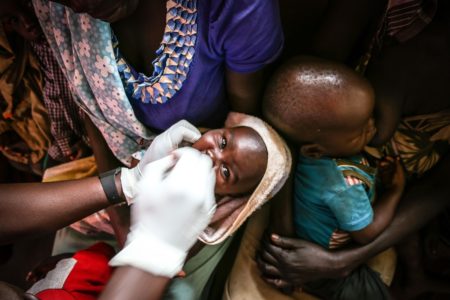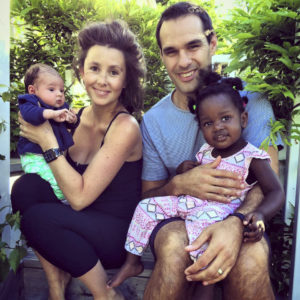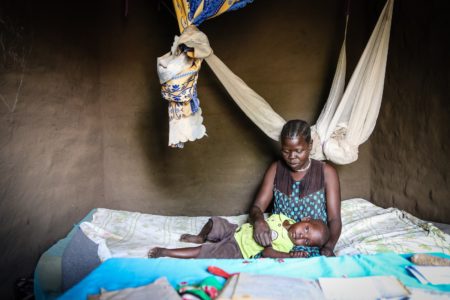
She’s a former Macleans College student working on the frontlines of one of the world’s greatest humanitarian crises – and Helen Manson is calling on Kiwis to help make a difference.
The 32-year-old lives in Kampala, Uganda with husband Tim and their two young children, doing humanitarian photography and storytelling for Tearfund New Zealand and various other NGOs.
She often travels to the borders of South Sudan – a nation where civil war broke out in December 2013 ignited by a political struggle between president Salva Kiir and former vice-president Riek Machar.
In July 2016 the conflict stepped up a notch, and with the additional outbreak of famine, the situation in South Sudan is now considered one of the world’s greatest humanitarian crises.
It is estimated 901,000 South Sudanese refugees have crossed into Uganda due to the ongoing conflict that has forced more than two million people to flee their homes.
“We’re seeing people literally running with anything they can carry, crossing that border and escaping what they’ve seen,” said Mrs Manson.
“They’ve seen dead bodies along the way. They’ve gone for days without food, they’re completely exhausted, they’re traumatised from having their house burnt down… they’re incredibly traumatised.”

The former Pakuranga couple settled permanently in Uganda three years ago, where Mr Manson works as country director for Tearfund’s partner Tutapona – a not-for-profit organisation providing trauma counselling for victims of war and refugees.
With a desire to be positioned alongside the most traumatised people in the world, setting up operations in Uganda and Iraq was a very intentional move, said Mrs Manson.
“It’s really strategic [for us] to be in Uganda, surrounded by countries that are in such war.
“Then in Iraq it’s very strategic too because you’ve got ISIS on your doorstep. [Tutapona] are working right in the heart of this area where people are coming out of Mosul. They’re working with people 24 to 48 hours out of being released from being sex slaves with ISIS.
“These people are fresh out of captivity [and] they’re at the worst end of the spectrum that you could expect because their trauma is so fresh… they have post-traumatic stress disorder to an extent we have never seen. Most of them have suicidal tendencies.”
The mother-of-two recently returned from Iraq where she was based in Sinjar – a town located three kilometres out of Mosul on the Syrian border where ISIS invaded in August 2014, killing more than 6000 people in one day and taking thousands more captive.
Three years on, heartbreaking scenes of destruction still permeate the defeated town, said Mrs Manson.
“It’s really bleak. They hope to return to their homes, but I’ve got pictures from Sinjar. I wouldn’t even know where to begin – that town is just annihilated.
“There’s also a lot of fear. People are worried they’re going to get caught because ISIS say ‘we will come and find you, and if you escape, we will kill everybody that you know’.”
Harrowing tales of abuse at the hands of ISIS, teenagers forced to wear suicide belts and children gifted grenades as birthday presents are only a fraction of the unimaginable horrors Mrs Manson hears about in her communications work for local and international non-profits.

She told the Times the couple speak often to counsellors and keep in regular contact with their families back home to deal with the confronting reality of their work.
“Hearing the worst of humanity’s stories and going to sleep at night can sometimes be a challenge because of the vicarious trauma, but I do feel like after doing this for a few years now we’ve got a good support system around us.”
Despite the dismal circumstances, Mrs Manson said some of the people on the frontlines of the crisis still hold out hope for a future defined by peace and not war.
The avid writer, who often pens her experiences on the couple’s blog timandhelenmanson.blogspot.co.nz, has witnessed first-hand the positive difference Tearfund is making on a global scale and said she has faith in the difference everyday Kiwis can make by supporting its work.
“What I want to do for these people is to help them and do whatever I can with my humble skill to bring them some light today.
“Whether that’s a water trucking or whether that’s food or whether that’s trauma counselling in the long-term, I feel like by writing about it and sharing it with Kiwis, we do help in some way.
“We really love it, and we really believe that this works.”
- You can help today by donating to Tearfund’s appeals for South Sudan and Iraq. Visit Tearfund NZ to give.











